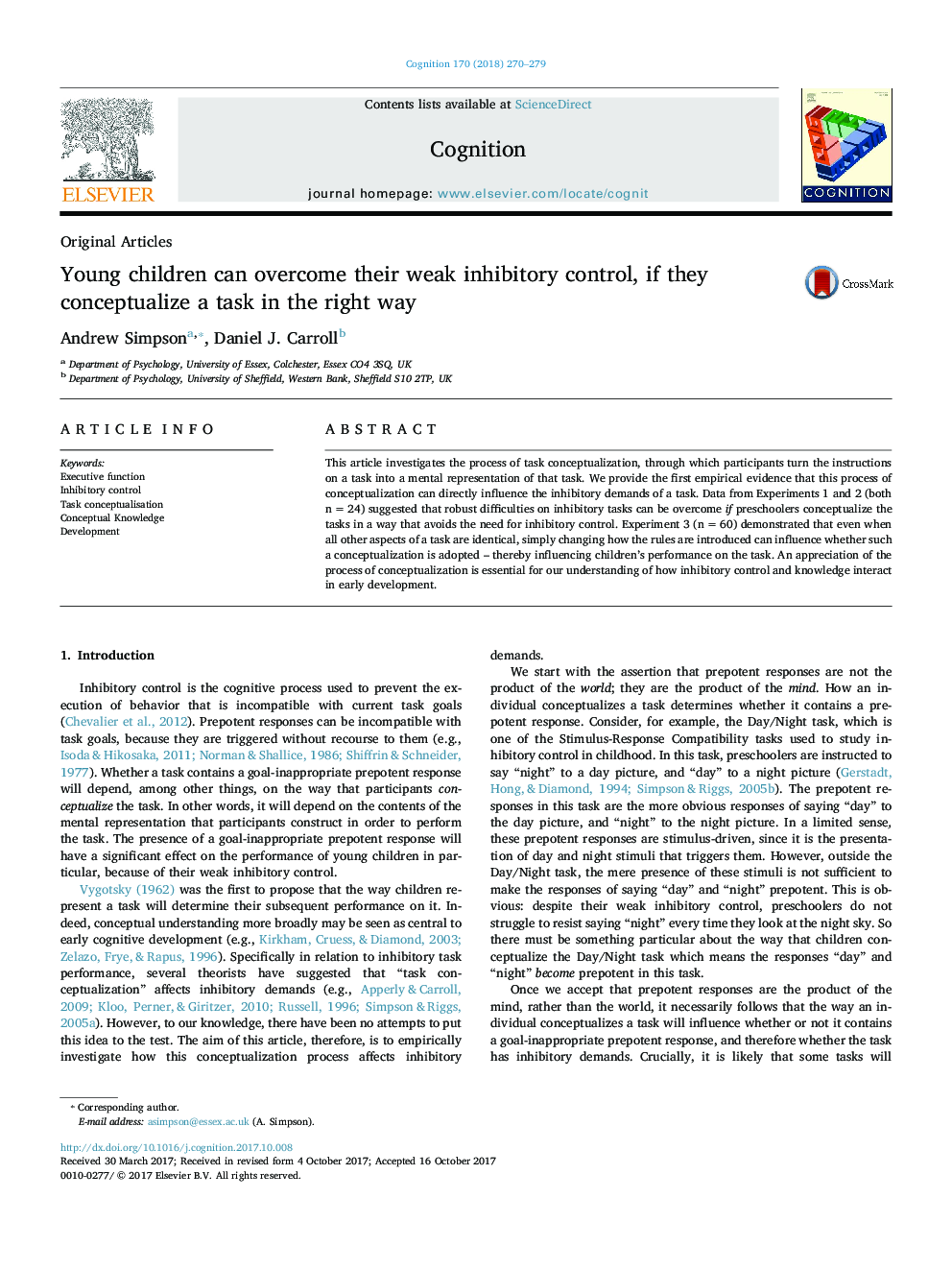| Article ID | Journal | Published Year | Pages | File Type |
|---|---|---|---|---|
| 7285690 | Cognition | 2018 | 10 Pages |
Abstract
This article investigates the process of task conceptualization, through which participants turn the instructions on a task into a mental representation of that task. We provide the first empirical evidence that this process of conceptualization can directly influence the inhibitory demands of a task. Data from Experiments 1 and 2 (both nâ¯=â¯24) suggested that robust difficulties on inhibitory tasks can be overcome if preschoolers conceptualize the tasks in a way that avoids the need for inhibitory control. Experiment 3 (nâ¯=â¯60) demonstrated that even when all other aspects of a task are identical, simply changing how the rules are introduced can influence whether such a conceptualization is adopted - thereby influencing children's performance on the task. An appreciation of the process of conceptualization is essential for our understanding of how inhibitory control and knowledge interact in early development.
Related Topics
Life Sciences
Neuroscience
Cognitive Neuroscience
Authors
Andrew Simpson, Daniel J. Carroll,
